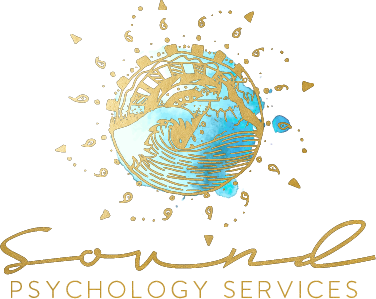
Executive Functioning Skills Coaching
Executive Functioning Skills Coaching
What is Executive Functioning Skills Coaching?
Executive functioning (EF) skills coaching helps people improve everyday skills like organization, time management, planning, task completion, and emotional regulation. It’s a goal-oriented process focused on practical strategies to make daily life easier.
EF Skills Coaching is:
Skills-Focused: Coaches teach tools and strategies, like using planners or breaking tasks into smaller steps.
Collaborative: It’s a teamwork approach, with the coach and individual working together to solve problems and track progress.
Action-Oriented: Coaching focuses on building skills for the future, rather than looking at past issues.
How is EF Coaching Different from Therapy?
While coaching and therapy can both be helpful, they’re not the same:
Purpose:
Coaching focuses on improving everyday skills to help with productivity and organization.
Therapy addresses emotional and mental health challenges, like anxiety or depression.
Approach:
Coaching is practical and action-driven.
Therapy often involves exploring emotions, past experiences, and deeper psychological issues.
Who Provides It:
EF coaches are trained to teach strategies but don’t treat mental health conditions.
Therapists are licensed professionals trained to diagnose and treat mental health concerns.
Tools Used:
Coaching uses tools like schedules, reminders, and organizational systems.
Therapy may use techniques like cognitive-behavioral therapy (CBT) to address emotional challenges.
Why Choose Us?
Our goal is to empower you with knowledge and resources to support your child’s learning journey. We understand that every child is different, and our approach is individualized, focusing on building strengths and addressing challenges. Our evaluations are not just about diagnosing learning disorders; they’re about providing actionable insights that can enhance your child’s educational experience and overall well-being.
Get Started Today
Contact us to schedule an appointment and take the first step toward supporting your child's success.
Payment Information
Private Pay
Dr. McDonald does not take insurance, but does provide superbills for potential reimbursement, in the case that your insurance company covers our out-of-network services. This allows us to spend more time helping YOU. Insurance often doesn’t cover learning disorder testing anyway- so this saves us both time. Payment plans are available. Not taking insurance allows me to avoid arguing with a stranger over whether they’ll pay for testing and/or treatment. It also protects your confidentiality and privacy.
FSA/HSA
If you have a Flexible Savings Account (FSA) or Health Savings Account (HSA), you can use the card associated with that account to pay for testing services. You can also pay by check or credit card and submit your receipt for reimbursement.
Late/ No Show Fees
Late cancellation/no-show fee for testing is $250 for testing appointments not cancelled prior to 48 hours before the appointment time. This is due to the fact that testing requires a day-long appointment. You will be required to complete all paperwork prior to 48 hours before the appointment and to keep a credit card on file.
Late cancellation/no-show fee is $75 for therapy appointments not cancelled prior to 24 hours before the appointment time.
Submit Your Own Claim
You can submit your claim on your own for possible reimbursement.This is a work around for providers who are “out of network.” The general steps for this process are as follows:
01. Call your insurance company. Ask them about your out of network benefits and what your deductible is. Ask them about the percentage of the visit cost you might be reimbursed for.
02. We will provide you with a “superbill” after your testing is complete (or monthly for therapy clients). This provides you the CPT codes for our sessions and diagnostic codes.
03. Submit the superbill to your insurance company.
Payment Terms
* Dr. McDonald charges a flat fee for testing and an hourly rate for therapy. We accept cash, check, or credit card payments. A credit card on file is required to hold your appointment. Half of the testing fee is collected at intake, and the remainder at feedback.


